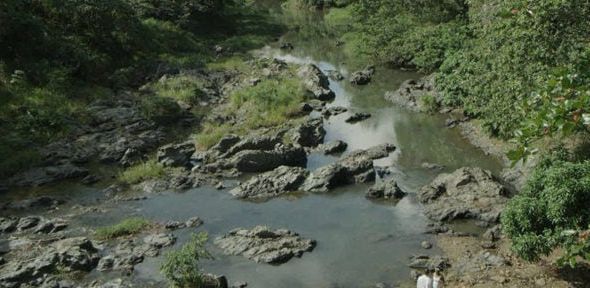
Please join us on Wednesday 9th November at 5pm for the next Cambridge Hispanic and Lusophone Research Seminar. Refreshments will be served afterwards! If you have any questions, please get in contact with the co-convenors Oliver Wilson-Nunn (ojw33@cam.ac.uk) and Carlos Iglesias Crespo (ci244@cam.ac.uk).
Speaker: Dr Francisco-J. Hernández Adrián, Durham University
Title: 'Schmitt, Glissant, Mouffe: Latinx, Islands, Films'
Date: Wednesday 9th November
Time: 5pm
Venue: SG2, Alison Richard Building
How do we approach, experience, and understand “island films”? To answer this question from a Caribbean and Atlantic viewpoint, it is crucial that we consider the multiple articulations of received notions insularity in Westerb aestheticopolitical imaginaries of islands, islanders, and island narratives. Discussing brief examples from the Cuban documentaries of Sara Gómez, Burn! / Queimada (Gillo Pontecorvo, Italy, 1969), and Cocote (Nelson Carlo de Los Santos Arias, Dominican Republic, 2017), the seminar will propose that a renewed critical attentiveness to constructions of island spaces in national, regional, and hemispheric film practices can generate new questions about island film practices. The seminar will suggest further that we should adopt different scales and interpretive methods that can not only locate current hegemonic readings in local context, but also displace and alter their epistemic foundations through a politics of insular perspectivism.
What would this project mean for an island-bound and island-conscious film criticism? Discussing Caribbean, Latin American, and other examples, the seminar will centre on specific notions of location, place, and cultural politics derived from the geopolitical writings of Carl Schmitt, the Caribbean poetics of Édouard Glissant, and narratives of radical democracy in Chantal Mouffe. The seminar will explorie three main questions in dialogue with these authors: What is the status of the global notion of a “nomos of the Earth” in relation to island film studies? What are the contemporary limits of Glissant’s notions of “relation,” “opacity,” and “field”? What is the relevance of Mouffe’s notions of antagonism and “politics and passions” for feminist and insurgent rereading of Caribbean and Global South film practices? As a polemical interpretation of these questions, the seminar will ask: What would it mean to imagine and conceptualize Caribbean and Latin American film diasporic practices from the viewpoint of an archipelagic “LatinX” film studies on the margins of European and U.S. audiovisual hegemony?


